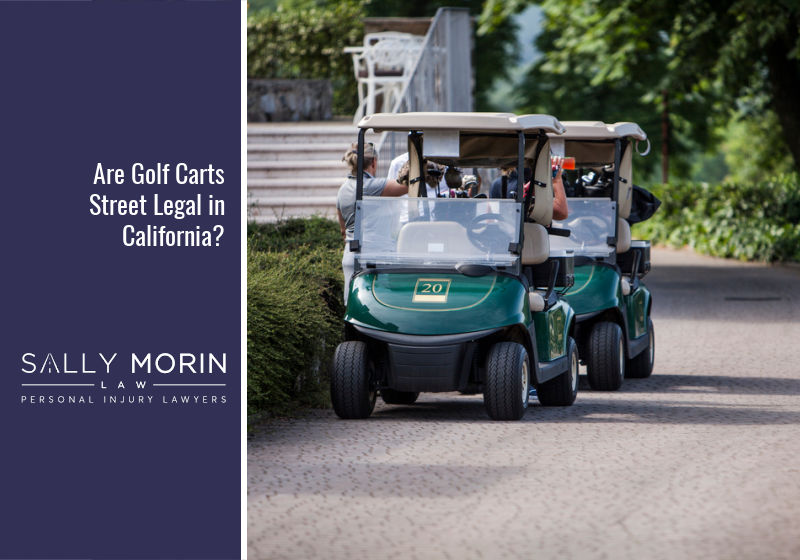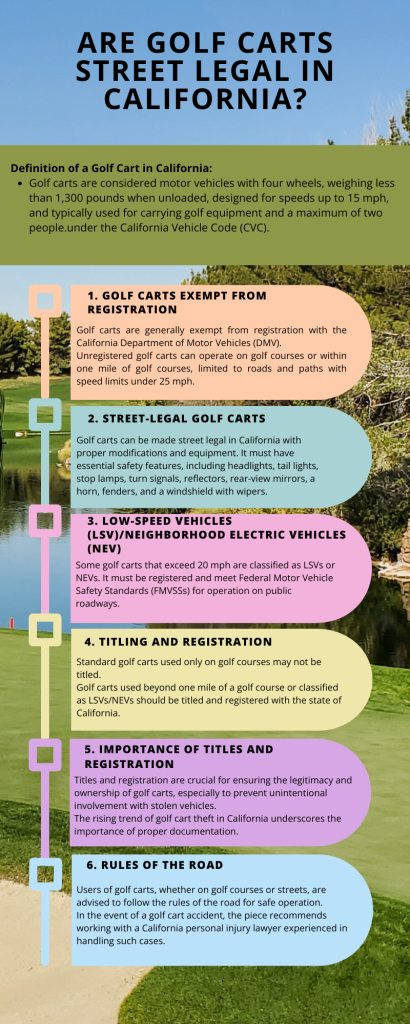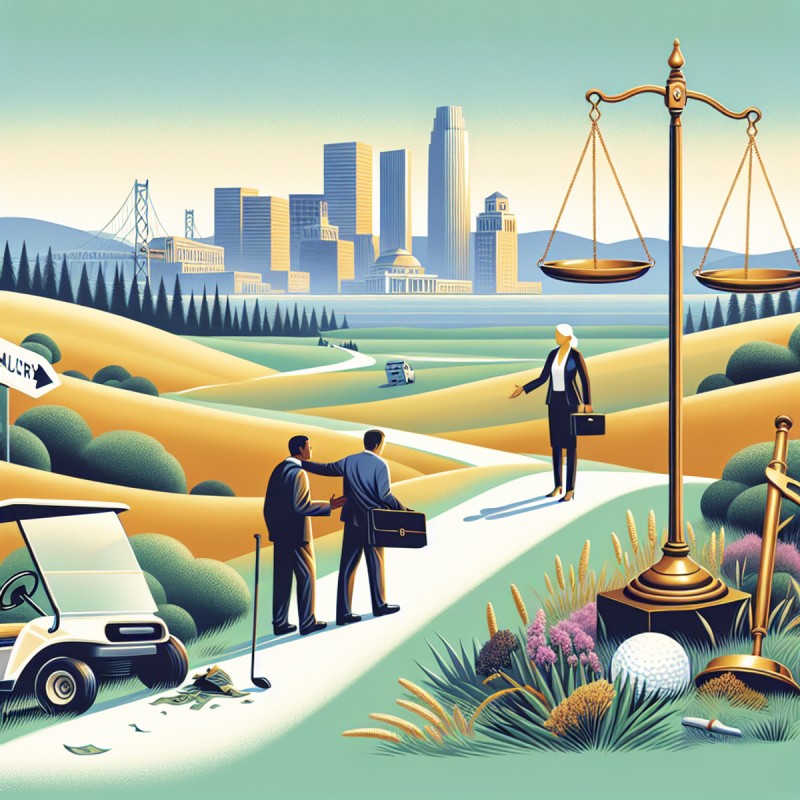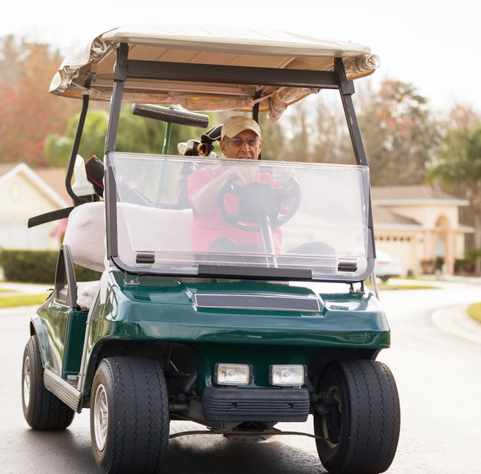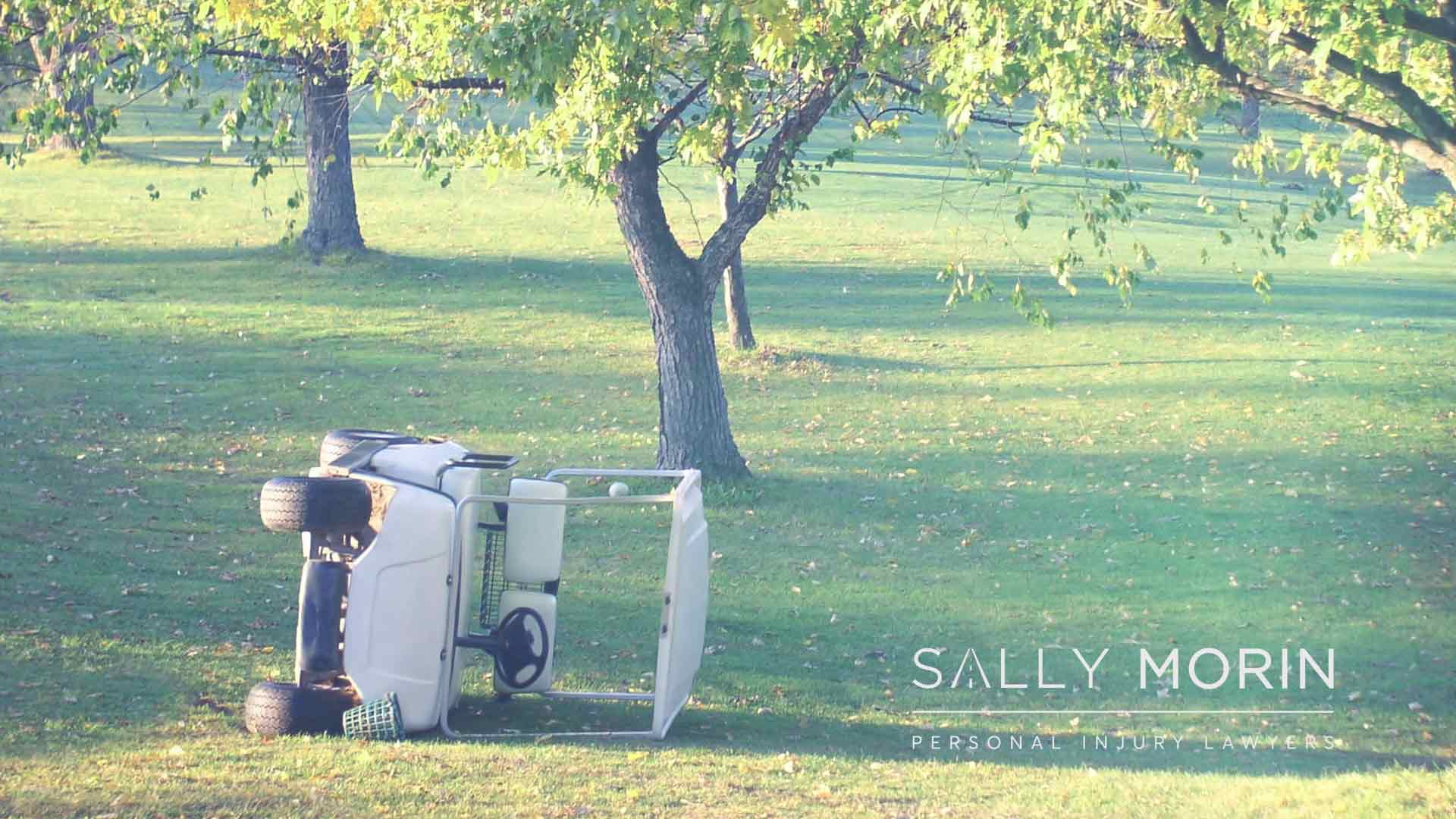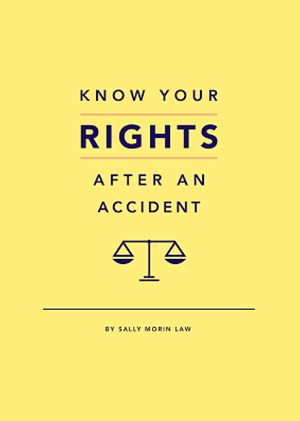Please be advised that the following topic is for informational purposes only and not a legal matter currently handled by our firm. If you need further assistance regarding this particular topic, you can contact your local Bar Association for a referral to an attorney who may be able to address your inquiry in more detail.
You might have noticed a lot more golf carts in California lately. People love driving these zippy little vehicles around their golf courses, retirement communities, and sprawling properties.
Street legal golf carts in California are a hot topic of conversation because there’s so much confusion about whether they’re supposed to be on the roads or not. Lawyers are hearing questions about how to operate them properly to prevent legal trouble.
Here are the most important things you need to know about whether golf carts are street legal in California and how to stay in compliance with the law.
What is Considered a Golf Cart in California?
Anyone who assumes golf carts aren’t motor vehicles is wrong. Several portions of the California Vehicle Code (CVC) regard golf carts as motor vehicles, including CVC 345, CVC 4019, and CVC 21115.
Under the law, a golf cart is defined as a motor vehicle with four wheels that make contact with the ground which weighs less than 1,300 pounds when unloaded and is designed to be operated at no more than 15 mph. By design, it carries golf equipment and should have no more than two people on board including the driver.
The California Department of Motor Vehicles (DMV) considers golf carts exempt from registration. This means golf carts don’t have to be registered, but they can be. Unregistered golf carts must operate on golf courses or within one mile of golf courses, driving only on roads and paths with speed limits under 25 mph.
Interested in taking your golf cart places other than golf courses? Below we’ll expand on what it takes to make a golf cart street legal in California.
Are Golf Carts Street Legal in California?
Yes, golf carts are street legal in California – but only when they’re properly equipped. A street-legal version of a golf cart is a motor vehicle that is based on the traditional body design made to carry golf equipment but has been modified to meet California’s requirements for street driving.
To be street legal, a golf cart must have the following equipment, according to the DMV:
- A minimum of one headlamp
- A minimum of one tail lamp
- A minimum of one stop lamp
- Front and rear turn signals
- Front and side reflectors
- A rear reflector
- A rear-view mirror that shows 200 feet to the rear
- A horn
- Fenders
- A windshield made of safety glass
- Windshield wipers
Keep in mind that some golf carts are technically considered low-speed vehicles instead of golf carts under California law. If your vehicle has four wheels and weighs less than 3,000 pounds but can exceed 20 mph, it is considered a low-speed vehicle (LSV), also known as a neighborhood electric vehicle (NEV), and must be registered.
The law says registered LSV/NEVs should:
- Have 17-digit vehicle identification numbers (VINs)
- Meet Federal Motor Vehicle Safety Standards (FMVSSs) for operating on public roadways
- Be operated by someone with a valid California driver’s license
- Be covered by insurance
Do Golf Carts Have Titles in California?
Standard golf carts operating solely on golf courses are not typically titled. They operate at low speeds and stay within the borders of the golf course, plus they don’t have the necessary equipment to be street legal.
However, if you want to drive your golf cart anywhere beyond one mile of a golf course, it should be titled and registered with the state of California. If you operate an LSV/NEV, the title/registration process is required.
Having a title and registration is also a good way to ensure you own a safe and legitimate golf cart. Here in California, golf cart theft is on the rise and you don’t want to inadvertently purchase or drive a stolen vehicle.
Enjoy riding in your golf cart and always follow the rules of the road as you drive. If you ever have the misfortune of being in a crash, make sure you work with a California personal injury lawyer who has plenty of experience with golf cart accidents.
Golf Cart Accident? We Can Help You Handle It
After a golf cart crash that causes injuries and property damage, please reach out to the attorney team at Sally Morin Personal Injury Lawyers. We handle many areas of California personal injury law, including golf cart accidents. We believe you should be able to focus on recovering from your accident while we handle the legal details. Call 877-380-8852 today for a free case evaluation.
